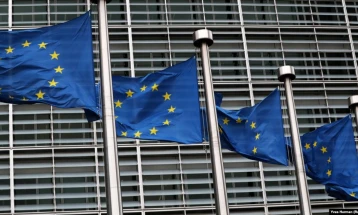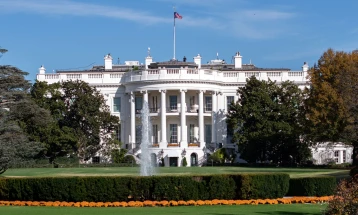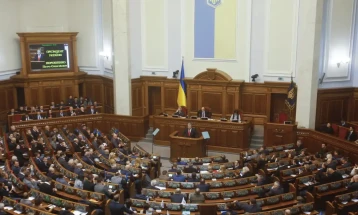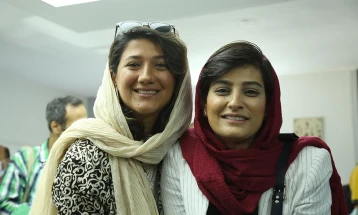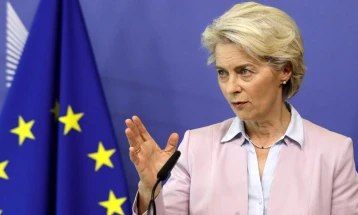US and UK opt out of international call for regulated AI use
- Around 60 countries have called for the transparent and sustainable use of artificial intelligence and international regulations in the closing declaration of a two-day international AI Action Summit in Paris.
- Post By Magdalena Reed
- 09:44, 12 shkurt, 2025
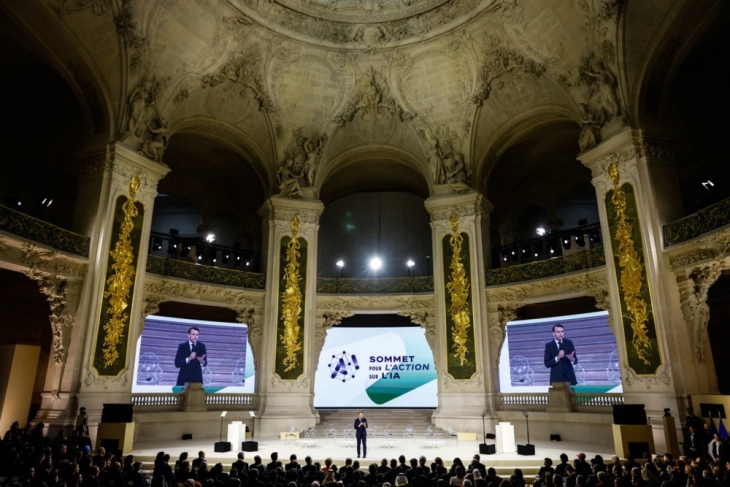
Paris, 12 February 2025 (dpa/MIA) - Around 60 countries have called for the transparent and sustainable use of artificial intelligence and international regulations in the closing declaration of a two-day international AI Action Summit in Paris.
The document was signed on Tuesday by the European Union, China and Germany, among others, but not by the United States, where private entities like OpenAI and Anthropic have been at the forefront of AI research. Britain also did not sign on to the communiqué.
It states that the signatories will prioritize "ensuring AI is open, inclusive, transparent, ethical, safe, secure and trustworthy, taking into account international frameworks for all."
It also calls for "making AI sustainable for people and the planet," as well as "international cooperation to promote coordination in international governance."
The AI summit brought together around 1,500 participants from some 100 countries to debate the impact of the disruptive technology on the public, potential applications of AI, and its regulation and responsible use.
Participants included international leaders, such as US Vice President JD Vance, German Chancellor Olaf Scholz and Indian Prime Minister Narendra Modi, as well as industry representatives and experts.
From the tech side, high-profile names included the chief executives of Microsoft, OpenAI and Google.
US vice president warns against over-regulating AI
Speaking at the summit in Paris, Vance offered signals as to why the Trump administration did not sign on to the declaration.
He warned that restricting the development of AI "would mean paralyzing one of the most promising technologies we have seen in generations."
Vance said the world was on the verge of a new industrial revolution, comparable to the invention of the steam engine. "But it will never come to pass if over-regulation deters innovators from taking the risks necessary to advance," he said.
The Republican vowed to do everything to support measures that promote growth, saying the current US administration wants to cooperate and be open when it comes to AI.
"But to create that trust, we need international regulatory regimes that foster the creation of AI technology rather than strangles it," he said.
Vance said Europe in particular needed to view AI with optimism rather than trepidation.
EU Commission president pledges billions for AI development
European Commission President Ursula von der Leyen pledged billions to support the European AI sector at the summit, saying AI would improve healthcare, drive research and innovation and increase competitiveness.
Von der Leyen said the so-called InvestAI initiative would be increased by €50 billion ($51.6 billion). A new European fund totalling €20 billion was to support the development of AI gigafactories, she said.
These factories are to train AI models, for example, and provide the necessary infrastructure. According to the European Commission, the funded gigafactories are the world's largest public-private partnership for the development of trustworthy AI.
More than 60 European companies had earlier unveiled an initiative to advance the development and application of artificial intelligence in European industry.
A total of €150 billion has been earmarked by more than 20 major international investors for AI-related projects in Europe over the next five years, it was reported.
A lot of money is also being invested in the United States with OpenAI and major technology partners planning to invest $500 billion in new AI data centres as part of the Stargate program.
Meanwhile, President Emmanuel Macron announced that companies plan to invest around €109 billion in expanding AI infrastructure in France.
So far, only a few European players have made a name for themselves in the AI sector. The industry leaders are based in the US, with some competition in China.
The leading European AI start-up, Mistral AI from France, primarily develops open source language models. Its German counterpart Aleph Alpha has largely abandoned the development of its own large language model and is focusing instead on specific AI solutions for corporate customers and public sector clients.
UN chief warns AI boom could widen global inequality, some nations "falling by the wayside"
UN Secretary General António Guterres meanwhile expressed concern that developing countries risked being left behind as countries scramble to develop AI technologies.
"While some companies and countries are entering a race for speed with unprecedented investments, most developing nations are falling by the wayside," he said.
"This increasing concentration of artificial intelligence capabilities threatens to exacerbate geopolitical divisions," Guterres added.
"We must ensure that artificial intelligence can bridge the gap between industrialized and developing countries, rather than widening it," the UN chief emphasized.
IEA chief stresses energy intensity of AI
The energy requirements of AI were also a concern for participants at the summit. The director of the International Energy Agency, Fatih Birol, said a medium-sized data center consumed as much electricity as 100,000 households.
AI companies rightly want a secure, affordable and sustainable power supply, he said, noting that countries that had this supply held an advantage over others.
Birol warned that the construction of data centers could be delayed or cancelled altogether if the expansion of the power supply dragged on.
However, AI could also help to optimize power systems and increase efficiency, the IEA chief said.

